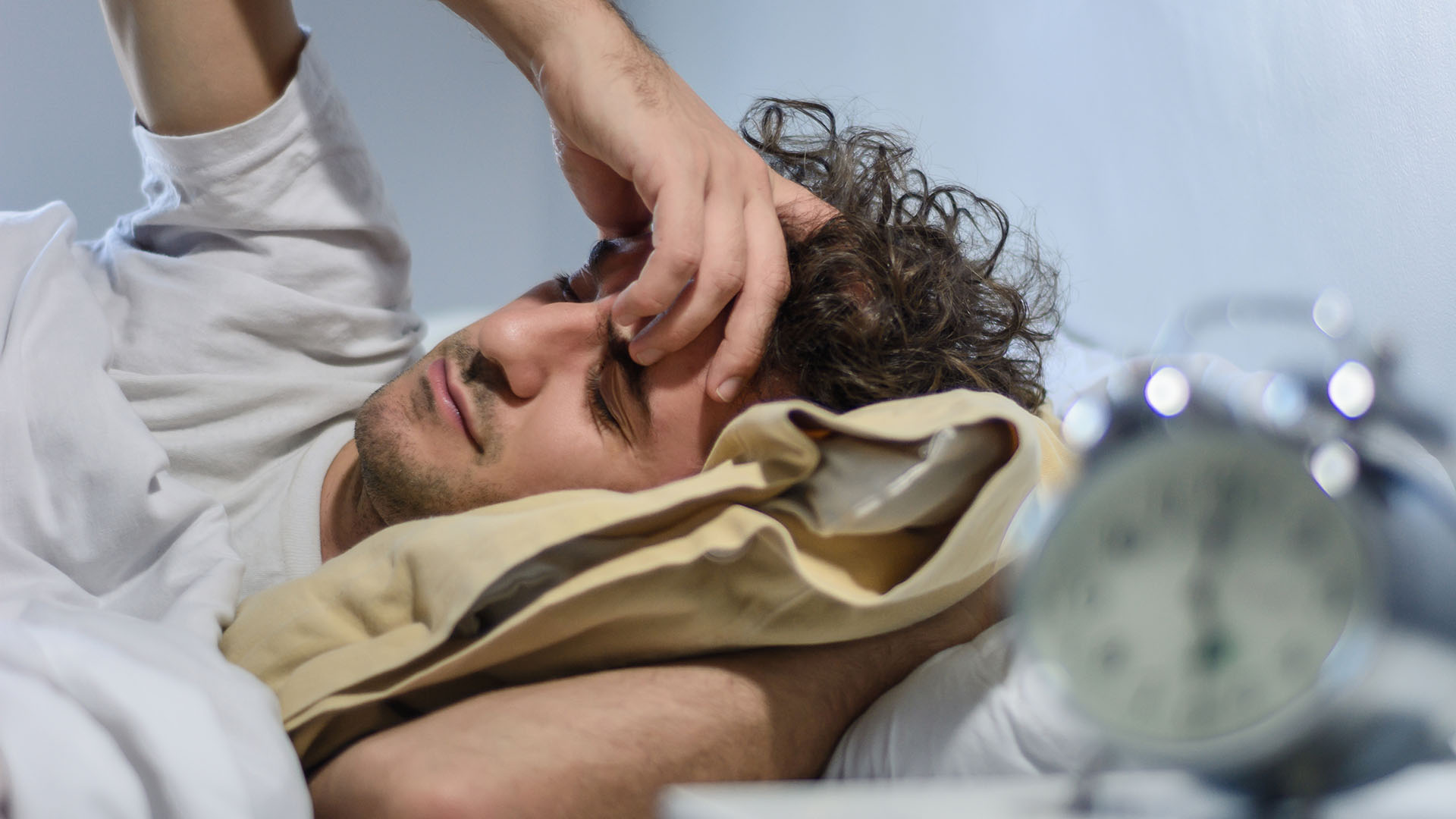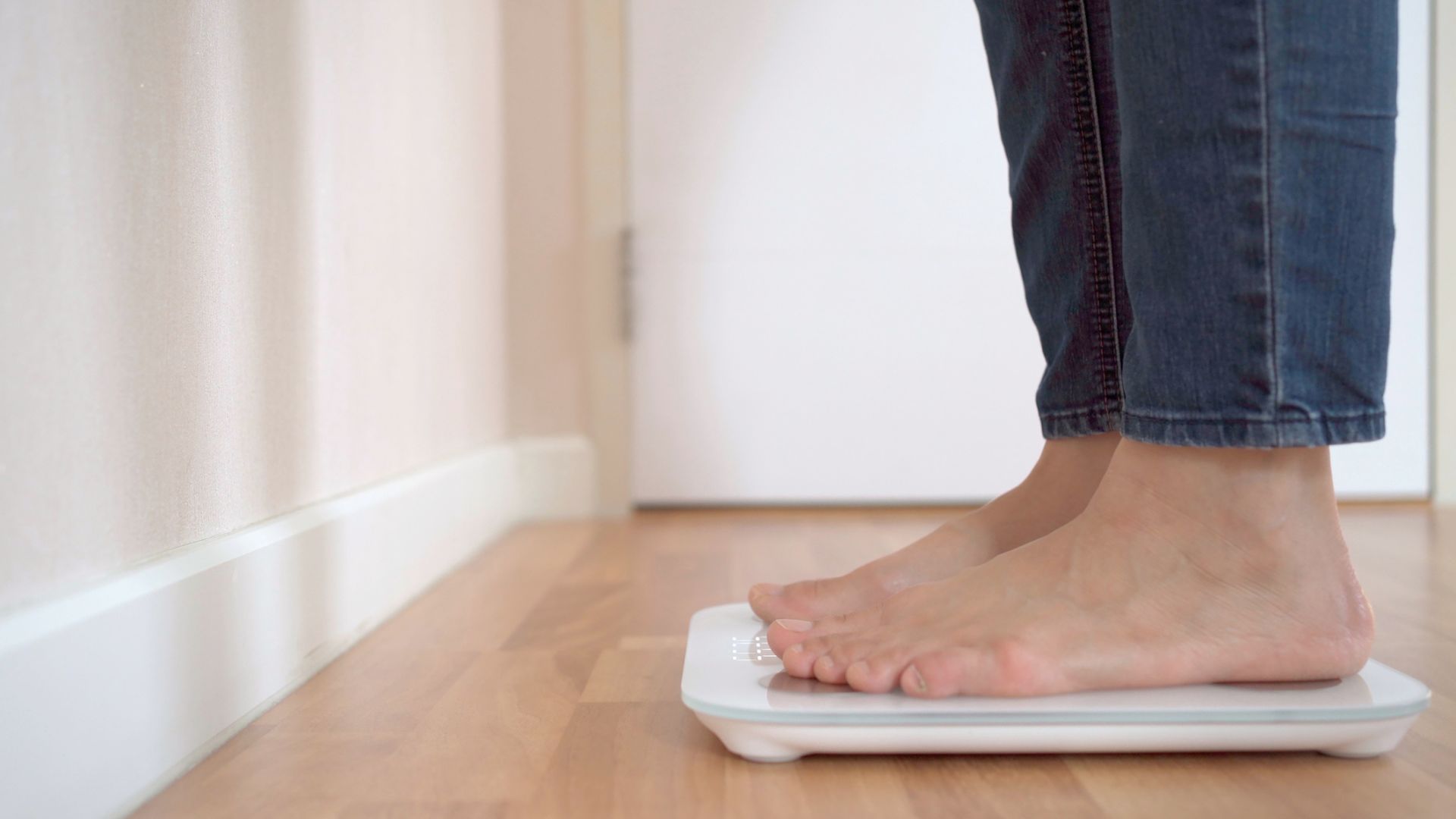Can getting good sleep help weight loss? Here's what the experts say
Improving sleep is crucial for healthy weight loss and maintenance

When you’re trying to lose weight the first tenements of health you look to overhaul are probably your diet and exercise. But what if we told you that good sleep could make weight loss easier?
Science finds that there’s a strong relationship between people who don’t get enough sleep and weight problems. The link between metabolism and sleep has been well explored, and we've asked two experts in the area to explain it further. Here, you’ll learn the impact of good sleep on weight, why your diet tends to suffer after poor sleep and how to improve sleep starting tonight.
So, let's walk through tried-and-true steps to create a healthy lifestyle routine that sets you up for weight loss or weight maintenance success—even if you decide to skip New Year’s resolutions this year.

Liz Josefsberg has been in the health and wellness industry as a weight loss expert and certified personal trainer for over 20 years. She has used her expertise to develop a program designed to help people lose weight for a healthy lifestyle, called Target100. She recommends good sleep has one of the essential pillars for achieving a healthy weight.

Dr Michael Breus is a clinical psychologist specializing in sleep disorders. For over 14 years Dr Breus has served as the Sleep Expert for WebMD and his second published book 'The Sleep Doctor’s Diet Plan: Lose Weight Through Better Sleep' explores the link between sleep quality and metabolism.
What is the link between sleep and weight gain?
Studies show that consistently getting too little sleep can lead to weight gain over time. Poor sleep is associated with eating more calories and burning fewer calories, meaning you take in more energy than you use, says Dr Michael Breus.
Sleep deprivation also diminishes willpower, making it more difficult to “just say no” to sweet treats or a bag of salty chips, he says. Not sleeping enough—or well—sends the hunger hormones out of whack.
A tired brain always thinks you're under-energized and that you need an energy source in the form of food. “Our bodies and our brains tend to bend us towards food when we feel tired, to keep us awake,” says Liz Josefsberg. Go for the water, she suggests. “It’s the most energizing thing you can drink.”

How good sleep can help healthy weight loss
If you're trying to maintain a healthy weight or lose weight for a healthy lifestyle good sleep will set you up for more success. Here’s how.
Sign up to get the BEST of Tom's Guide direct to your inbox.
Get instant access to breaking news, the hottest reviews, great deals and helpful tips.
It helps you stick to your activity goals
“A poor night’s sleep often leads to what I call the ‘infinity loop’ falling apart,” says Josefsberg. “First, you miss out on a good night's sleep. Then, you skip your workout, which usually helps balance your hunger hormones and makes it easier to choose healthy foods. Now, because you didn’t sleep or exercise, your hormones are out of whack, and you spend the rest of the day just trying to feel normal,” she adds.
Unfortunately, a bad night's sleep doesn't always lead to a good night's sleep. In fact, poor sleep can make it difficult to fall asleep the next night, because your body clock is out of rhythm. So getting consistently bad rest can soon spiral out of control, making it difficult to follow an exercise routine.

It regulates your appetite
When you’re not sleeping, the body produces an increase in a hormone called ghrelin, which makes you hungrier. “I call it the ‘go eat’ hormone,” says Josefsberg. “When ghrelin is elevated, your body is telling you to eat.”
Sleeping five hours or less a night? Your leptin hormone is decreasing. “It’s the one that says, ‘I'm not hungry, I'm going to stop eating,’” says Josefsberg. This creates a significant gap that explains why you're feeling so hungry, she says. Sticking to a consistent sleep schedule will keep these hormones operating optimally so you aren’t as hungry the next day.
It can help you through a weight loss plateau
“Just about everyone who’s tried to lose weight has struggled at some point with a weight-loss plateau,” says Dr Breus. This is when you stop losing weight despite maintaining regular exercise and sticking to a healthy diet.
Most people experience it, and it’s part of the weight loss process. New research shows that getting enough sleep and sticking to a regular sleep routine can help you break through a weight-loss plateau, making it easier to achieve a healthy weight.

How to get better sleep
Getting better quality sleep—and more sleep—can start with your next meal or by establishing a healthier bedtime routine tonight. You can set yourself up for better weight loss by concentrating on these components that contribute to quality sleep and overall good health.
Set a consistent sleep schedule
Keeping a consistent sleep schedule and giving yourself the time you need for sleep ensures you aren’t in a constant "sleep debt" and having anxiety over your sleep, says Dr Breus.
A consistent sleep schedule also helps regulate our circadian rhythms – also known as our body clock. This means we’ll feel naturally energized throughout the day and sleepy in the evenings, making it easier to fall asleep and stay asleep.
Create a nighttime routine
A consistent, healthy nighttime routine can set you up to have a great night’s sleep. Turn down the lights, stay off the screens, avoid emotional conversations and reduce exposure to things that will upset you, recommend our experts.
“Move to your bedroom where it's calming, read a book or do something relaxing that will help prepare your body and mind for sleep,” says Josefsberg. It’s not just that stressful encounters and media cause the stimulating hormone, cortisol, to spike in the body, it’s that adrenaline accompanies cortisol and will keep you awake.

Avoid alcohol, big meals, and sweets before bedtime
Avoid alcohol, caffeine, and nicotine before bed, Dr. Breus suggests. Alcohol will cause you to wake up in the middle of the night as your body processes it—shortening REM sleep. Drinking alcohol can also cause sleep problems in general or exacerbate the sleep issues you already have.
Try to avoid eating too close to bedtime but if you do have to eat, make it a smaller, healthy meal with a focus on protein, Josefsberg suggests. Stay away from greasy, heavy, or spicy meals as they can interfere with your ability to fall asleep.
Get sunlight exposure early in the day
Go for a walk in the sunshine early in the day to get vitamin D and regulate the circadian rhythm in the morning for better nighttime sleep, suggests Josefsberg. It doesn’t have to be long—10 or 15 minutes. The sun exposure can improve sleep quality and sleep patterns, according to studies.

Get professional advice
“About 80 percent of the time I see a sleep disorder, it's a proxy for something else going on in the body,” says Dr Breus. When you aren’t sleeping well it's a sign that something is wrong.
Don't ignore it because it's not going away. Address the sleep issues you have by seeing a sleep specialist or doctor who can assess your overall health and look at your medications.
Diana is a trained journalist and experienced editor in the health and wellbeing and lifestyle sectors. Diana has created content for a range of leading brands including Real Simple, Bloomberg, Headspace, and WebMD. For Tom’s Guide Diana currently focuses on sleep, mattresses, and fitness equipment.

